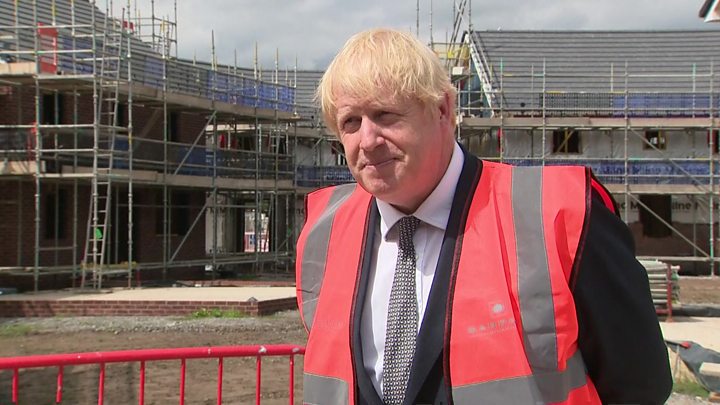
The prime minister has defended a decision not to suspend a Conservative MP who was arrested and bailed on suspicion of rape.
Boris Johnson said such allegations are taken "extremely seriously".
But he said a decision would be taken on the MP's position after police "decide whether they want to make charges".
Conservative Chief Whip Mark Spencer has said it was right the police were investigating.
The Conservative Party has been criticised for not suspending the unnamed 50 year old man, but Mr Spencer has said anything that risked identifying the complainant must be avoided.
On Tuesday, a group of women's charities and unions called on Parliament to step in and suspend the MP.
The prime minister was asked on a visit to Warrington, to promote government planning reforms, whether he was confident it was the right decision not to remove the whip from the former minister.
He said: "I think it's very, very important that we take all these cases extremely seriously and we will continue to do so.
"I think we've got to wait for the police to decide whether they want to make charges and take a decision on that basis."
What stops the media from naming rape suspects?
The police usually do not name suspects before charging them and there are two powerful parts of the law which deter the media from naming them.
Firstly, an alleged victim has automatic right under statute to lifelong anonymity. That right can only be waived in writing by the victim.
The media must therefore be careful not to add to a "jigsaw" identification and so must limit publishing any details which could help identify an alleged victim.
There are also strong privacy reasons for not naming. Cliff Richard's 2018 legal action against the BBC (and later cases) established that individuals under investigation by the state have a reasonable expectation of privacy in relation to the fact of an investigation and its details up until they are charged.
That can be displaced but only if there are sufficient public interest grounds to name the suspect. It is a balancing act which different parts of the media, advised by their different lawyers, view differently.
Which is why some parts of the media may decide to name more quickly than others.
The Metropolitan Police said the allegations related to four separate incidents claimed to have taken place between July 2019 and January 2020.
The Sunday Times reported that the allegations against the former minister had been made by an ex-parliamentary employee.
The decision not to remove the party whip means the MP continues to sit in the House of Commons as a Conservative.
However, Parliament is in recess until 1 September.